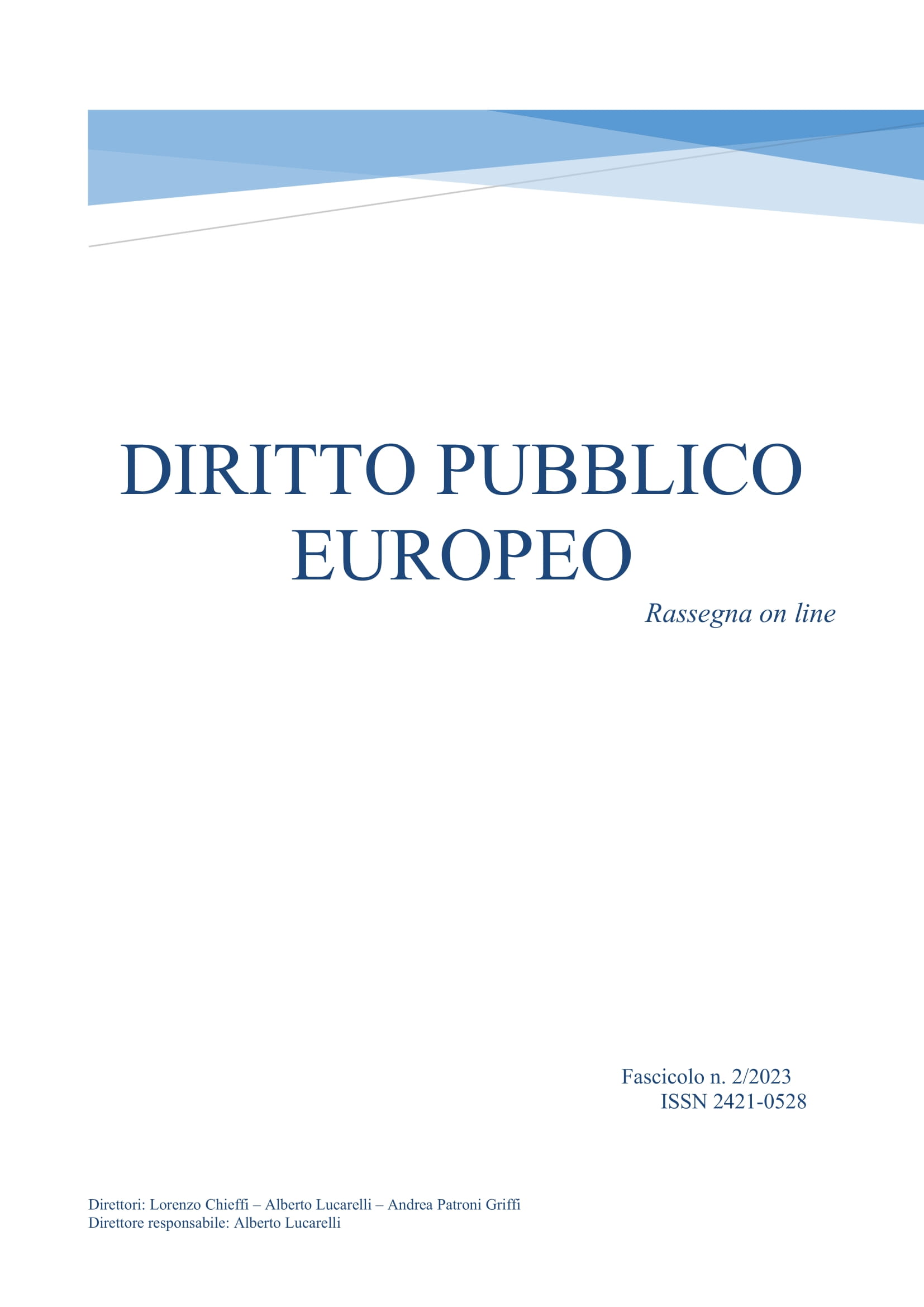“Costituzione economica” e teoria della costituzione materiale
Abstract
Il saggio affronta il tema della costituzione economica muovendo da una proposta tassonomica complessa, protesa a distinguere i plurimi usi e significati della nozione alla luce di una breve rassegna critica delle principali posizioni dottrinali. La classificazione prospettata è prodromica alla presentazione di una teoria alternativa, volta ad inquadrare la costituzione economica nell’ambito della costituzione materiale (mortatianamente intesa) come determinazione interna all’unità complessiva della costituzione (così accogliendo l’invito di Natalino Irti) attraverso l’individuazione di un fine politico-economico fondamentale inteso come declinazione dell’idea-forza della costituzione materiale. Questa ricostruzione teorica consente – sul piano del diritto positivo – di inquadrare la costituzione economica italiana attorno al fine della piena occupazione (obiettivo costituzionalmente rilevante ex art. 4 Cost.), considerato come proiezione sul piano economico dell’idea-forza del lavoro (posto a fondamento della Repubblica ex art. 1 Cost.). Correlativamente, emerge la configurazione costituzionale di un’economia mista finalisticamente orientata, grazie alla valorizzazione dei principi-valvola di cui agli artt. 41 ss. interpretati sistematicamente con gli artt. 1 e 4 Cost. La chiave analitica prescelta è impiegata, infine, per analizzare criticamente l’impatto del processo di integrazione europea sulla costituzione economica, prospettando problematicamente un mutamento di costituzione materiale a costituzione formale invariata come nuovo genere di trasformazione costituzionale
Downloads
Copyright (c) 2023 Paolo Piluso

This work is licensed under a Creative Commons Attribution 4.0 International License.




